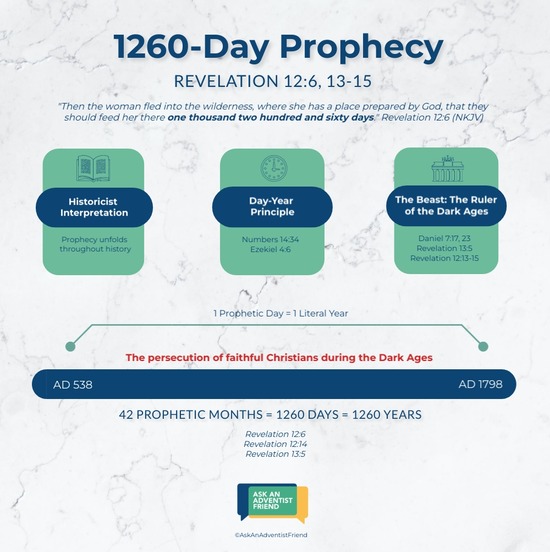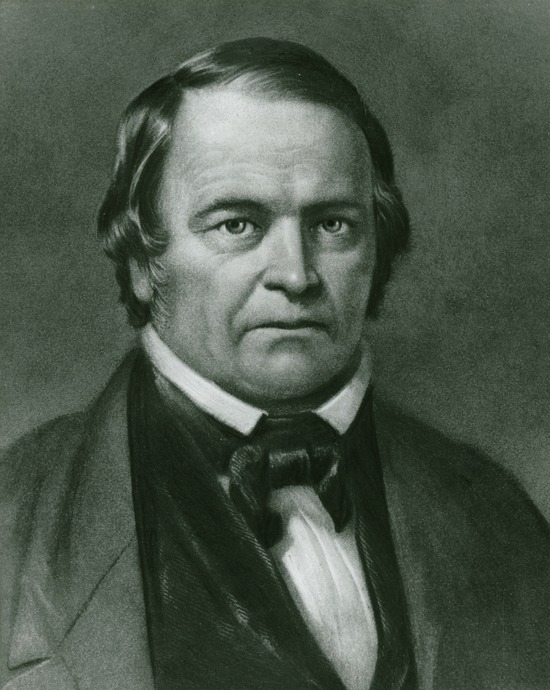What Are the Three Angels’ Messages in Revelation 14?
Revelation 14:6-12 in the Bible depicts three angels flying swiftly to the earth with important messages for the world right before Jesus Christ returns. These messages are warnings for people to turn to God and leave religious confusion and false worship before He comes.
They prepare the people of the earth for the Second Coming of Jesus Christ. They tell us that a time of judgment is about to happen and also give us a glimpse into an imminent yet telling crisis—a crisis of allegiance and worship.
But ultimately, they give us hope that there will be a group of people on earth who represent God’s character to the world and love Him so much that they will be loyal to Him to the point of death.
The three angels’ messages can actually be an exciting topic with many pieces that fit together. Here, we’ll give you an overview as we cover the following:
Why are the three angels’ messages important?

Photo by Paz Arando on Unsplash
The three angels’ messages prepare God’s people to make it through the challenges of the last days. They warn us of a crisis between true worship and false worship that will take place right before Jesus returns. And it’s a choice we’ll all have to make—who will we be loyal to?
But how do we know these messages are for the time before Jesus returns?
The three angels’ messages are located in Revelation 14:6–12. They’re positioned right before a scene in which “the Son of man” (referring to Jesus) comes on a “white cloud” to “harvest” the earth (Revelation 14:14-20).
That “harvest” is a reference to the coming of Jesus and His kingdom (Matthew 13:30, 39), and taking His followers with Him to heaven.
But right before He comes, the three angels’ messages of Revelation 14 warn of a religious power that will try to force people to worship human traditions. This crisis reaches down to the core of who humans are—beings with free will to choose what we value and whom we will worship.
Through it, God’s people will proclaim the everlasting Gospel (Revelation 14:6)—which reveals the truth about God’s character (Romans 1:16-17).
He is not a God of force but a God of love who has done everything possible to save His people and give us the opportunity to choose Him. He even went through the pain of death on the Cross and the agony of bearing the sins of the world rather than break His promise to His people.
And those who are loyal to Him will have that faith. A faith so strong that they’ll be willing to give their lives for Him (Revelation 14:12). They will overcome the enemy “by the blood of the Lamb [Jesus] and by the word of their testimony, for they loved not their lives even unto death” (Revelation 12:11, ESV).
The three angels’ messages encourage us to seek Jesus more deeply. He is the only one who can give us that kind of faith through crisis.
To understand this crisis better, we’ll need some background. This means going back to Revelation 12.
The background to the three angels’ messages
The three angels’ messages in Revelation 14 are the culmination of a sweep of history that begins in chapter 12 and continues through chapter 13. Revelation 12 portrays God’s people (the church) down through history and shows how Satan (the enemy angel who rebelled in heaven) has been trying to bring the church down. Then, Revelation 13 explains how Satan uses a religious power on earth to try to accomplish his purposes.
You may have noticed that Revelation is a book full of symbols.
If taken literally, they’d make no sense!
But when we allow other parts of the Bible to interpret these symbols, the strange descriptions become clear.
We’ll notice some of these symbols in Revelation 12.
Revelation 12: The woman
 Revelation 12 describes a war in heaven, where a dragon—Satan—is cast to the earth, and a woman gives birth to a male child, which the dragon tries to kill. The woman represents God’s people, His church, throughout history.
Revelation 12 describes a war in heaven, where a dragon—Satan—is cast to the earth, and a woman gives birth to a male child, which the dragon tries to kill. The woman represents God’s people, His church, throughout history.
Many times, the Bible uses a pure woman as a symbol of God’s faithful people (2 Corinthians 11:2; Jeremiah 6:2).
We first find that this woman represents the Jewish nation as God’s people. She gives birth to “a male child, one who is to rule all the nations with a rod of iron, but her child was caught up to God and to His throne” (Revelation 12:5, ESV).
No doubt, this male child is a reference to Jesus, who was born to a Jewish family and into Jewish culture. After His ministry and death, He ascended back to heaven, and someday, He will rule all nations on earth (Acts 2:32-33).
But Revelation 12 also introduces us to another character—a red dragon (verses 3–4). We learn a few verses later that this dragon is “that ancient serpent, who is called the devil and Satan, the deceiver of the whole world” (verse 9, ESV).
Throughout Revelation 12, Satan, as the dragon, seeks to war against the woman, God’s people.
After the male child “was caught up to God and to His throne,” the woman “fled into the wilderness, where she has a place prepared by God, in which she is to be nourished for 1,260 days” (Revelation 12:6, ESV).
The dragon continues to persecute the woman during this period of 1,260 days or 42 months (verse 13–15), representing 1,260 years.
Where do we get 1,260 years?
In Bible prophecy, days are symbolic of literal years (Ezekiel 4:6; Numbers 14:34)—a principle held by many Bible scholars, as noted by Adventist theologian Gerhard Pfandl. This principle is consistent with the biblical understanding that prophecy unfolds through history.1
We already know that this 1,260-year period took place after Jesus’ ascension. It likely describes the persecution of faithful Christians during the Dark Ages from AD 538 to 1798.
This brings us nearly down to our time.
Right after, Revelation 12:17 tells us:
“And the dragon was enraged with the woman, and he went to make war with the rest of her offspring, who keep the commandments of God and have the testimony of Jesus Christ” (Revelation 12:17, NKJV).
Satan is even angrier with God’s people who have survived tumultuous times. He’s determined to war against those who remain.
Revelation 13 shows us how he will try to do that.
Revelation 13: The beast

Photo by Greg Rosenke on Unsplash
Revelation 13 introduces us to another character, the beast: one with seven heads and ten horns that resemble a leopard, and with the feet of a bear and a lion’s mouth. Looking at Daniel, another prophetic book connected to Revelation, we find that a beast symbolizes a political power or nation (Daniel 7:17, 23).
The beast works with the dragon to oppose God’s people and lead people to worship the dragon (Revelation 13:4, 7).
Let’s look at some identifying characteristics of this beast:
- It comes from a highly populated area, represented by the sea/waters (Revelation 13:1; 17:15).
- It has rulership and authority, as evidenced by the symbols of crowns and horns (Psalm 89:17; Daniel 8:24).
- It receives its power, seat, and great authority from the Roman Empire, symbolized by the dragon. Yes, the dragon represents Satan, but also secondarily the Roman Empire. We know this because the dragon in Revelation 12 worked through King Herod, a vassal of the Roman Empire, to try to destroy Jesus soon after He was born (Revelation 12:4; Matthew 2:13).
- It has a global influence (Revelation 12:3).
- It’s a religious power because it is seeking worship (Revelation 12:4).
- It speaks blasphemous words. Blasphemy is a term used to describe speaking against God but also trying to take on the attributes of God. That’s why Jesus was accused of blasphemy by the Pharisees when He said He was God and could forgive sins (Mark 2:5-7; John 10:33).
- It persecutes God’s people and has power for 1,260 literal years, described in Revelation 13:5 as 42 prophetic months. This religious and political power ruled during the time of the Dark Ages and persecuted the woman (God’s people) mentioned in Revelation 12:13-15.
All through Revelation 13, this religious and political power is making war against God’s people.
Revelation 14 is the culmination of this situation, showing us how God’s people will be victorious in the end.
Revelation 14: God counteracts the beast
Revelation 14 shows us how God’s people will remain faithful to Him and counteract the work of the religious and political power in Revelation 13.
Verses 1–5 jump ahead in time and give us a glimpse of heaven. God’s people are there, and they are described as “those who follow the Lamb [Jesus] wherever He goes. These have been redeemed from mankind” (Revelation 14:4, ESV).
But then, in verse 6, the writer of Revelation shifts back to the end times, describing the message that shapes these people and prepares them for Jesus’ coming.
The messages come from three angels:
- First angel: “I saw another angel flying in the midst of heaven” (Revelation 14:6)
- Second angel: “Another angel followed” (verse 8)
- Third angel: “Then a third angel followed them” (verse 9)
So who are they?
Who are the angels carrying the three angels’ messages?

Photo by Greg Rosenke on Unsplash
The angels in Revelation 14 represent God’s people who are bringing the good news of His character to the world.
Here’s how we came to this conclusion.
In Greek, the word for angel is translated simply as “messenger” or “one who is sent.”2
And what is the message of the messengers in Revelation 14? They have “the everlasting gospel to preach to those who dwell on the earth—to every nation, tribe, tongue, and people” (verse 6, NKJV).
Interestingly, Galatians 4:14 refers to someone who carries the Gospel of Christ as an angel.
Furthermore, Jesus commissioned His followers to preach the Gospel throughout the world (Matthew 28:18-20). The Gospel going to all the world is one of the events that tells us that Jesus’ coming and the end of the world are near (Matthew 24:14).
Thus, these messengers are none other than God’s people fulfilling this commission.
Let’s dive in and understand their messages more.
The first angel’s message

Photo by Tingey Injury Law Firm on Unsplash
The first angel’s message is found in Revelation 14:6-7. This angel is carrying the everlasting Gospel—the good news about God and His character. The message calls people to glorify God through faithfulness to His commandments and to worship Him as Creator because a judgment is taking place.
Here’s the full text:
‘Then I saw another angel flying in the midst of heaven, having the everlasting gospel to preach to those who dwell on the earth—to every nation, tribe, tongue, and people—saying with a loud voice, ‘“Fear God and give glory to Him, for the hour of His judgment has come; and worship Him who made heaven and earth, the sea and springs of water” (Revelation 14:6-7, NKJV).
We’ll break the message into its key parts, starting with the everlasting Gospel.
The everlasting Gospel
We’ve already noted that the Gospel is the message that Jesus commissioned us to share worldwide (Matthew 24:14; 28:18-20).
But what does the Gospel mean? Literally, it means “good news.”
Romans 1:16-17 sheds some more light:
“For I am not ashamed of the gospel of Christ, for it is the power of God to salvation for everyone who believes…. For in it the righteousness of God is revealed from faith to faith” (NKJV).
So, the Gospel is the message about Christ and the power of salvation He offers to all who choose to believe in Him (John 1:12). It also reveals to us the righteousness—character—of God.
It’s the truth about His character of love—a love so strong that even death couldn’t overcome it (John 3:16; 1 John 4:8). Jesus chose to die because He loved us so much and wanted to give us the opportunity to be saved from our sins.
Fear God

Photo by Naassom Azevedo on Unsplash
The call to fear God isn’t about being scared of Him. After all, God’s love casts out that kind of fear (1 John 4:18).
Rather, “fearing” God is another way to say that we have reverence and profound appreciation for Him.
Proverbs 1:7 tells us that “the fear of the Lord is the beginning of knowledge.” Later on, the passage equates it with walking in God’s ways (verse 29). Similarly, Deuteronomy 8:6 compares “fearing” God with keeping His commandments and walking in His ways.
Give glory to Him
The call to give glory to God is, first and foremost, a call to represent His character of love.
Jesus told His disciples:
“If you abide in Me, and My words abide in you, you will ask what you desire, and it shall be done for you. By this My Father is glorified, that you bear much fruit” (John 15:7–8, NKJV).
Abiding in Jesus and having His words and truth in our lives will lead us to “bear much fruit.”
Fruit? Jesus is no doubt referring to the fruit of the Spirit, which are all characteristics of God: “love, joy, peace, longsuffering, kindness, goodness, faithfulness, gentleness, self-control” (Galatians 5:22-23, NKJV).
God calls us to glorify Him through representing Him in the way we live our lives.3 This is possible when we have Christ within us as “the hope of glory” (Colossians 1:27).
The hour of His judgment has come
This part of the verse gives us the reason for the message: God’s judgment has come.
Keeping our timeline from earlier in mind, we know that the three angels proclaim their messages at the end of time, right before Jesus comes.
Daniel 7 also prophesied a judgment that would occur right before Jesus’ return to the earth to receive His kingdom (see verses 9-14).
In Daniel 8:14, this judgment is referred to as “the cleansing of the sanctuary” because it parallels a ceremony in the Israelite sanctuary that represented a time of judgment.
Adventists believe that just like the daily animal sacrifices in the sanctuary represented Christ’s death for us on the cross, the cleansing of the sanctuary—which took place once a year—represents this judgment that Christ carefully completes in the sanctuary in heaven (Hebrews 8:1-2; 9:23-24). We call it the investigative judgment.
Daniel 8:14 prophesied that this time of judgment would begin after a period of 2,300 years, which ends in 1844.
Worship Him

Photo by Kristopher Roller on Unsplash
The last part of the first message calls us to worship the Creator:
“Him who made heaven and earth, the sea and springs of water” (Revelation 14:7, NKJV).
Notice the similarity of this message to the fourth commandment:
“Remember the Sabbath day, to keep it holy…. For in six days the Lord made the heavens and the earth, the sea, and all that is in them, and rested the seventh day. Therefore the Lord blessed the Sabbath day and hallowed it” (Exodus 20:8, NKJV; Exodus 20:11, NKJV, emphasis added).
The first angel’s message is a reminder of the fourth commandment to keep the seventh-day Sabbath—the day that reminds us of Creation and brings us into a closer connection with God.
Ironically, this is the one commandment that much of the world has disregarded.
The first angel’s message calls us back to keeping all of God’s commandments. This is particularly significant since the basis of God’s judgment is His commandments (Ecclesiastes 12:13-14; James 2:12).
As we read about the other two messages, we’ll find that faithfulness to God’s commandments is a key theme.
The second angel’s message
This message in Revelation 14:8 warns against religious confusion caused by false teachings and calls us out of it. It says:
“Babylon is fallen, is fallen, that great city, because she has made all nations drink of the wine of the wrath of her fornication” (NKJV).
To begin, you’re probably wondering, What is Babylon?
Babylon

Photo by Corbin Mathias on Unsplash
Babylon comes from the root word babel, meaning “confusion.”
The first time we find it in the Bible is in Genesis 11:1-9. After the flood, people began building a tower at Babel in their efforts to defy God and reach heaven by their efforts. As a result, God had to intervene and confuse their languages.
Later, Babylon grew into a large world empire that destroyed Jerusalem and took the people of Judah captive (2 Kings 25).
The nation of Babylon was characterized by:
- Pride (Isaiah 47:10)
- Sorcery (Isaiah 47:12)
- Forced worship (Daniel 3)
The symbolic language of Revelation portrays Babylon as a “mother of prostitutes” (Revelation 17:5, ESV).
As we saw earlier, a woman in Bible prophecy represents God’s people. A pure woman is one who is faithful to God, while an adulterous woman or a prostitute is one who has turned away from a faithful relationship with Him (Hosea 1:2).
Thus, Babylon represents a religious entity that has turned away from God.
We also find in Revelation 17:2 that Babylon unifies herself with “the kings of the earth” or civil powers (NKJV). As a result, this religious entity has the power and authority to compel worship.
Sounding familiar?
Based on their many common characteristics, Babylon is synonymous with the religious entity represented by a beast in Revelation 13.
Let’s find out how this entity “has fallen.”
Fallen
In the Bible, a “fall” is associated with sin, rebellion against God, or falling away from the truth (Hosea 14:1; 2 Thessalonians 2:3).
Babylon has fallen from the truth because it is not upheld by Christ. He is the one who is able to keep us from falling (Jude 24-25).
Wine

Photo by Ashley Byrd on Unsplash
Wine can be a symbol of false teaching in the Bible (Isaiah 28:7-10). Proverbs 31:4-5 warns that kings should not drink wine because it’ll cloud their judgment, and they’ll lead the people to forget the law.
Similarly, the wine of Babylon—its false teachings—leads people to forget God’s truth and His law.
Because God’s law is a reflection of His character, the confusion and false teachings of Babylon ultimately center around a misunderstanding of God’s character. From the moment the serpent deceived Eve in the Garden of Eden and made her distrust God’s selfless love (Genesis 3:1-5), Satan has been trying to get humans to see God as someone who is selfish and unfair.
Jesus came to this earth to dispel those lies and reveal the true character of God so that we don’t have to live in their confusion.
Come out
Though not directly stated in the second angel’s message, the implication is that God’s people should come out of Babylon—any religious entities that ultimately yield confusion and false or fruitless teachings.
But in Revelation 18:2-3—sometimes referred to as the fourth angel’s message— we find a near-repetition of the second angel’s message with the addition of the following words:
“Come out of her, My people, lest you share in her sins” (verse 4, NKJV).
In the Old Testament, God called His people to come out of literal Babylon after their captivity. Similarly, today He calls us out of the confusion of spiritual Babylon.
The third angel’s message

Photo by Sonika Agarwal on Unsplash
The third angel’s message of Revelation 14 is a strong warning against false worship. Those who favor human traditions are contrasted with those who remain faithful to God and His commandments.
This message is the most urgent of all the three and is declared with “a loud voice” (verses 9, NKJV), which says:
“If anyone worships the beast and its image and receives [its] mark on his forehead or on his hand, he will also drink the wine of God’s wrath, which is poured out full strength into the cup of his anger.
He will be tormented with fire and sulfur in the sight of the holy angels and in the sight of the Lamb, and the smoke of their torment will go up forever and ever. There is no rest day or night for those who worship the beast and its image, or anyone who receives the mark of its name.
This calls for patient endurance from the saints, who keep God’s commandments and their faith in Jesus” (Revelation 14:9-12, CSB).
Let’s unpack this one.
Warning against aligning with the “beast” power
Here, we encounter the same beast we learned about in Revelation 13. The same religious and political power that:
- arose from a highly populated area
- has rulership and authority
- receives its power, seat, and great authority from the Roman Empire
- has a global influence
- attempts to take on the attributes of God
- persecuted God’s people during the Dark Ages
Revelation 13 emphasizes that this entity is seeking worship for itself (verses 4, 8). In fact, in the last days of earth’s history, “all who dwell on the earth will worship him” except those whose names are in “the Book of Life of the Lamb slain from the foundation of the world” (verse 8, NKJV).
But those who have chosen faithfulness to Jesus will not cave in to the pressure to worship this entity.
The mark of the beast
What is the mark of the beast? Is it a credit card? A microchip?
We’ll allow the Word of God to interpret itself.
Understanding the contrasts between Revelation 13 and 14 will help us identify the mark:
| Revelation 13 | Revelation 14 |
| A message to worship the beast (verse 14) | A message to worship God (verse 6) |
| A lamb-like beast (verse 11) | The Lamb (verse 4) |
| Wrath of beasts against God’s people | The wrath of God |
| Death decree against those who don’t worship the beast (verse 15) | A death decree from God (verses 10–11) |
| Mark of the beast, which includes the name of the beast (verses 16–17) | The seal of God, which includes the name of the Father (verse 1) |
Just like the beast has a mark for either the forehead or the hand, God’s people will also have a mark.
If we know what God’s mark is, then the beast’s mark must be the opposite.
According to Revelation 14:1, those who are faithful to God have His “name written on their foreheads.” Revelation 7:3 also speaks of “the servants of God” being sealed “on their foreheads” (NKJV).
What is this seal?
(Remember that Revelation is full of symbols, so this seal is probably not a literal mark on the forehead.)
In ancient times, a seal was a sign of a ruler’s authority. A king would have used a seal to place his stamp of approval on documents.
Similarly, God’s seal—or sign of authority—is His law. In fact, in Isaiah 8:16, He says, “Seal the law among My disciples” (NKJV).
A seal usually contains certain elements: the ruler’s name, title, and ruling jurisdiction.
Where do we find God’s name, title, and ruling jurisdiction?
In the center of His commandments. The fourth commandment in Exodus 20:8-11 mentions these three elements:
- The ruler’s name: “the Lord your God”
- Title: Creator
- The ruling jurisdiction: “the heavens and the earth, the sea, and all that is in them”
So the seal of God is represented by our active loyalty to Him as sovereign of the whole world. The mark of the beast, then, is active loyalty to the beast power.
Are you starting to see the connections throughout the three angels’ messages?
- In the first message, God’s people are called to worship Him as Creator by keeping His commandments, including the fourth commandment
- The second message warns them about false worship and confusion
- The third message urges them to avoid the mark of the beast, meaning they should receive the seal of God, which is characterized by faithfulness to His commandments.
That’s why the end of the third angel’s message emphasizes God’s people as those who “keep the commandments of God and the faith of Jesus” (Revelation 14:12, NKJV).
They will have this seal on their foreheads—but not in a literal sense. Instead, it will be in their hearts and minds, revealed in the way they live their lives (Deuteronomy 6:5–7; Hebrews 8:10). They will represent God’s character and law of love (Romans 13:10).
In contrast, those who receive the mark of the beast choose to follow the influence of human traditions and of the false religious entity. When the religious entity compels this worship through economic restrictions and eventually a death penalty (Revelation 13:16-17), they’ll do whatever they can to protect their own lives. Instead of embracing God’s law of love and self-sacrifice, they’ll be focused on self-preservation.
God’s wrath

Photo by Cullan Smith on Unsplash
While there have been many unsettling interpretations of God’s wrath, let’s look closely at what these verses tell us about it.
First of all, God’s wrath is directed against the beast and its image (Revelation 19:20; 20:10), and all the deceit and oppression the beast brings against His children.
But the point in the third angel’s message is that anyone who aligns themselves with the beast will be subject to the same consequences.
So during this time period, when God’s wrath is “poured out” against the beast, there will be no relief or respite. This “pouring out” of God’s wrath is an act of finality, leading to the destruction of the beast and all those who have turned away from God (Revelation 20).
Its consequences (the “smoke of their torment”) will be everlasting (Revelation 14:11), but the punishment itself will not last forever because those who are cast into the lake of fire will die “the second death” (Revelation 20:14, NKJV). God’s judgments will lead to the cleansing and re-creation of this earth, where evil and suffering will no longer exist (Revelation 21:1-5).
Find out more about what hell really is according to the Bible.
Patient endurance
After the final consequences for the beast are described, we see both instruction and encouragement for the followers of God (saints) to be patient.
They will need strength and endurance through the mark of the beast crisis. This endurance involves keeping God’s commandments and having faith in Jesus, even while the rest of the world demands otherwise (Revelation 14:12).
But Revelation 14 also points out that their patience is about to be rewarded. The verses that follow the messages of the three angels talk about Jesus “harvesting” the earth or gathering His followers to Him.
The saints
When we hear the word saint, we may think first of those individuals throughout history who are revered as “ultra-holy” people.
However, when the Bible talks about saints, it’s really just referring to those who follow God—those who have been set apart because they live by His ways of selflessness, peacefulness, compassion, etc.4
The third angel’s message brings out three characteristics of God’s people at the end of time:
- They have patient endurance
- They keep the commandments of God
- They have faith in Jesus
These people choose to hold onto God in the face of pressure to turn away from Him.
They choose to be faithful to God’s commandments because they have faith in Jesus (Galatians 2:20). And it’s only by having that faith in Him that we’re able to obey His law and represent His character (Romans 3:20).
Faith in God fuels faithfulness to God.
Revelation 12:17 describes the deep loyalty God’s people will have to Him:
“They overcame him [the devil] by the blood of the Lamb and by the word of their testimony, and they did not love their lives to the death” (NKJV).
And it’s the three angels’ messages—the truth about God—that shape these people into overcomers.
So let’s pause and recap.
We’ve learned:
- The first angel’s message calls us to glorify God and worship Him as the Creator through honoring His commandments.
- The second angel’s message warns us against religious confusion that leads to a false worship of God.
- The third angel’s message contrasts those who worship a religious political power with those who remain faithful in worshiping God.
All three of the messages center around true worship versus false worship.
And in our final section, we’re going to look at their importance to Adventists today.
Why do the three angels’ messages matter to Adventists?

Photo by Priscilla Du Preez 🇨🇦 on Unsplash
The three angels’ messages of Revelation 14 are foundational to the Advent Movement because they led us to see the importance of certain truths in the Word of God. We also consider these messages to be the “present truth” for our time—truth that is specifically relevant to this generation because we’re living in the time right before Jesus returns.
So let’s trace the discovery of the three angels’ messages and how they’ve impacted the Seventh-day Adventist Church.
It started before our denomination even existed.
Preaching the first angel’s message during the Millerite Movement
In the 1830s, the Millerite Movement arose as people realized that the Bible prophesied Jesus would return in a literal manner. People began to teach this.

“Courtesy of the Ellen G. White Estate, Inc.”
And based on the prophecy in Daniel 8:14, some began to say that Jesus was coming back in 1844.
As the Millerites studied their Bibles, they discovered the first angel’s message and strongly believed that the message proclaimed the Second Coming.5
After all, all Christian churches then believed that the judgment would take place at the Second Coming.6
But when 1844 came and went, the Millerites were deeply disappointed. Had they misunderstood the prophecy of Daniel 8:14? What had gone wrong?
Though many were disillusioned, some sincere Bible students returned to their earnest study. They soon realized that the prophecy had been correct, but the event had been wrong.
A judgment had started—but it was taking place in heaven and preceded the Second Coming.
And what about the second angel’s message?
Coming out of churches that opposed the truth of the Second Coming
Up until 1844, the Millerites had no intentions of leaving their various Christian churches. They remained and shared what they were learning about the Second Coming.
But as time went on, many mainstream churches began to oppose and ridicule them for their beliefs. The opposition forced them to separate from these churches. They couldn’t let go of the truth that Jesus would come in a literal manner—it was too beautiful and too exciting.7
And it was around that time that they came to understand the second angel’s message, a call to come out from religious confusion and false teachings. These believers viewed their separation from their churches as a response to this message.
So, how did the Adventist Church come into play?
Proclaiming the commandments of God and the faith of Jesus

Photo by Adrian Curiel on Unsplash
After Jesus didn’t return in 1844—an event that became known as the Great Disappointment—those who returned to study the Bible continued to discover truth. Truth that had been long-forgotten in Christianity.
They realized the importance of God’s law and the fourth commandment to keep the Sabbath. And not in a legalistic way. Rather, they saw following God’s law as a loving response to His character of love, as reflected in those commandments. The Sabbath is a gift from God, reminding us to rest in His love rather than trying to earn our salvation.
And by 1847, they began to see the connection to the third angel’s message. They were living within the time that the message should be proclaimed.8
This group eventually became the Seventh-day Adventist Church.
And Adventists have felt particularly responsible to share this message of truth in Scripture.
One of the founders of the Adventist Church, Ellen White, wrote:
“The third angel proclaiming the commandments of God and the faith of Jesus, represents the people who receive this message, and raise the voice of warning to the world to keep the commandments of God and His law as the apple of the eye; and that in response to this warning, many would embrace the Sabbath of the Lord.”9
Still today, we believe that we have the opportunity to share this beautiful message that reveals the everlasting Gospel and the truth of God’s character.
Our longing is for people to embrace faith in Jesus. A faith that empowers them to remain faithful to Him—even in the darkest of times.
On this page, we’ve only given you an overview of the three angels’ messages in Revelation 14. To understand more details, get started on these free online Bible studies that can help you unpack some of the more challenging concepts.
- Pfandl, Gerhard, “Understanding Biblical Apocalyptic,” Biblical Hermeneutics: An Adventist Approach, p. 275. [↵]
- “Angel” in Strong’s Concordance and Thayer’s Greek Definitions. [↵]
- See also Matthew 5:16; Romans 4:20; and 1 Corinthians 10:31. [↵]
- “Saints,” Baker’s Evangelical Dictionary. [↵]
- Loughborough, J. N., The Great Second Advent Movement (Adventist Pioneer Library, Jasper, Oregon, 2016), p. 85. [↵]
- Ibid., p. 94. [↵]
- Ibid., p. 145. [↵]
- Ibid., p. 220. [↵]
- White, E. G., Life Sketches of Ellen G. White, p. 96. [↵]
Questions about Adventists? Ask here!
Find answers to your questions about Seventh-day Adventists
More Answers
Why Many Seventh-day Adventists Choose a Vegetarian Diet
Why Many Seventh-day Adventists Choose a Vegetarian Diet?You may have an Adventist friend who is vegetarian, or maybe you’re attending a Seventh-day Adventist Church for the first time and notice the potluck doesn’t have any meat. This isn’t unusual in Adventism. In...
The Health Benefits of Fresh Air You Should Know About
The Health Benefits of Fresh Air You Should Know About“When you can’t breathe, nothing else matters,” the American Lung Association tells us. And while that’s true, the kind of air you’re breathing will determine the health benefits you experience. Breathing fresh...
What Do Seventh-day Adventists Choose to Eat?
What Do Seventh-day Adventists Choose to Eat?Food blogs overwhelm the internet; food fads are all the rage; and copycat and healthy versions of food are the subject of many a get-together. Eating—and eating the best way—is a big deal. And everybody has a different...
10 Incredible Ways Sunlight Can Improve Your Health
10 Incredible Ways Sunlight Can Improve Your HealthAre you concerned about sunlight’s negative effects? You might be the one who lathers on the sunscreen and covers up when you go outside. Or maybe you avoid being outside as much as possible. You might be surprised,...
Why Is Water So Important?
Why Is Water So Important?We all know that water is a substance we can’t live without. It quenches our thirst and keeps us hydrated on the inside. And it’s necessary for hygiene and cleansing on the outside too. But did you know that the cleansing properties of water...
Ellen White’s Writings and the Adventist Health Message
Seventh-day Adventists are known for their emphasis on healthy living. And Ellen G. White was a significant influence in the development of this priority and practice among Adventists.
Health Clinics
Ellen White and Adventist Healthcare—Ahead of Their Time Medical care in the mid-1800s was primitive, to say the least. Basic concepts we take for granted—such as proper handwashing or recognizing the dangers of bloodletting—were nonexistent. And doctors often had...
What Did Ellen White Teach about Vegetarianism?
What Did Ellen White Teach about Vegetarianism?One thing you might have heard about Seventh-day Adventists is their emphasis on a vegetarian lifestyle. If you’re wondering why that is, it goes back to our church’s humble beginnings: As Adventists studied the Bible,...
How Ellen White’s Teachings Can Improve Your Health
How Ellen White’s Teachings Can Improve Your Health Healthcare in the nineteenth century was said to leave “more disease than it took away” with its use of bloodletting and “medicines” like mercury and arsenic.1 As people questioned these methods, new approaches...
Change Your Perspective on Life with These 5 Mindsets
5 Biblical Mindsets to Change Your Life for the Better Sometimes, life is just plain hard. There’s no way around it. So would thinking about things differently really change anything? Our perspective on life, and everything it throws at us, affects more than we’re...
Bible Promises for When You’re Worried or Fearful
Bible Promises for When You’re Worried or Fearful The Bible is full of beautiful promises that can comfort us in a variety of situations. They can give us hope when we are hopeless, make us feel grateful for God’s love, and comfort us when we’re grieving or suffering....
12 Practical Ways to Overcome Worry
12 Practical Ways to Overcome Worry DISCLAIMER: This content is for informational purposes only. It does not constitute any professional medical advice and is not intended as a substitute for professional mental health therapy. It’s easy to get stuck in a cycle of...
How the Bible Talks About Worry, Fear, and Anxiety
How the Bible Talks About Worry, Fear, and Anxiety Worry and fear are the ingredients of anxiety. It’s easy to see how the world isn’t perfect—and the anticipation of a bad event or experience (that may or may not even happen) can end up draining the peace and...
How to Calm Anxious Thoughts, Using the Bible
How to Calm Anxious Thoughts, Using the Bible You were expecting a phone call from your daughter half an hour ago, and she still hasn’t called. She’s also not answering your calls. You feel your heart thumping as your thoughts race: What if she’s been in a car...
What You Should Know About the Adventist Health Studies
What You Should Know About the Adventist Health StudiesYou may have heard that Seventh-day Adventists care about health. But what you may not know is that Adventists have been the subjects of long-term research into lifestyle and health. Since 1958, researchers from...
Benefits of Sunlight
Yes, There Are Health Benefits of SunlightDespite the bad reputation it’s gotten, sunlight is generally associated with positivity, as shown by songs like “You Are My Sunshine,” or phrases that refer to delightful people as having a “sunny disposition.” There’s a...
Why Your Body Needs Rest for Optimal Health
Why Your Body Needs Rest for Optimal HealthStruggling to think straight? Wondering why you can’t remember that important tidbit you heard earlier today? Feeling like your emotions are about to explode? These are just some of the symptoms that can reveal your need for...
The Seventh-day Adventist Diet: One of Our Key Longevity Secrets
The Seventh-day Adventist Diet: One of Our Key Longevity SecretsOats, avocados, lentils, tofu—probably not what you first think of in a standard American diet. But if you show up at the home of an Adventist, chances are you may be served one of these staples. Out of a...
Why You Need Fresh Air
Why You Need Fresh Air“When you can’t breathe, nothing else matters,” the American Lung Association tells us. We couldn’t agree more! Breathing in clean air is an essential part of caring for our bodies, which God has given us. Together with other health principles,...
Sabbath Meal
Everything You Need to Know About Sabbath MealsFor Seventh-day Adventists, sharing a Sabbath meal with friends and family is one of the most special and memorable parts of the Sabbath. That’s why we want to share with you all about Sabbath meals and why they’re such a...
Adventists and Healthy Living
Adventists and Healthy LivingWhat’s the Adventist “Health Message” All About? One thing Seventh-day Adventists are known for is their emphasis on living healthy lives. Since our bodies are living temples of the Holy Spirit (1 Corinthians 6:19, 20), we strive to stay...
Water’s Importance—Physical Benefits and Spiritual Applications
Water’s Importance—Physical Benefits and Spiritual Applications We all know that water is a substance we can’t live without. Not only does it quench our thirst and keep us hydrated from the inside, but it’s necessary for hygiene and cleansing on the outside as well....
How Important is a “Day of Rest?”
How Important is a “Day of Rest?” Why God Created a Day for Downtime by Martin Casper Do you ever experience the feeling of complete overload? Do you feel like the only way you can get ahead is by slamming it 24/7? I hear these types of comments more and more...
7 Reasons Why a Day of Rest is Important
7 Reasons Why a Day of Rest is ImportantWe live in a fast-paced world. It seems as if success is measured in how much you can do in a short amount of time. (Extra points for the service or product that is available 24/7). The idea that we will be more successful if we...
How do Adventists choose what to eat?
How do Adventists choose what to eat?Every day, parents go through the ritual of getting their kids to eat what is healthy and good while trying to steer them away from what can hinder the growth of their developing bodies. Nutritionists work with their clients to...
How Can I Have a Better Marriage?
Is it possible to have a happy marriage?
Why are many Adventists Vegetarian?
Why are many Adventists Vegetarian?The diet intended for man is outlined in Genesis 1:29, “And God said, ‘See, I have given you every herb that yields seed which is on the face of all the earth, and every tree whose fruit yields seed; to you it shall be for food.’”...
Didn’t find your answer? Ask us!
We understand your concern of having questions but not knowing who to ask—we’ve felt it ourselves. When you’re ready to learn more about Adventists, send us a question! We know a thing or two about Adventists.




















